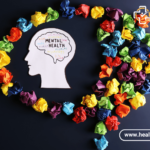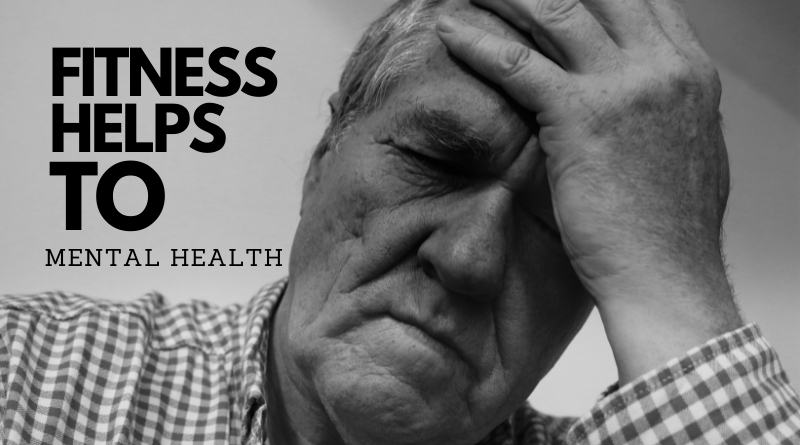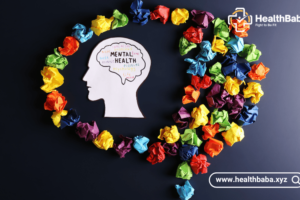Fitness is a key component of a healthy lifestyle. Those who incorporate a fitness routine into their lives also tend to have better mental health. A 2010 study found that those who exercise regularly have lower levels of depression and anxiety, as well as higher self-esteem.
One way that fitness helps with mental health is through the release of endorphins. Endorphins can contribute to feelings of happiness and reward, as well as lessen the effects of depression and anxiety.
Has the exercise effect is positive?
Exercise has many health benefits. One such benefit is that it reduces the risk of heart disease, cancer, and diabetes. Research has found that exercise can lower blood pressure and cholesterol levels. It will also reduce incidence of chest pain caused by coronary artery disease. The study of over ten thousand adults found that those who exercised regularly had a 20 percent lower incidence of stroke than people who were less active.
Exercise and mental health
Exercising is one of the most important things you can do for your physical and mental health. Exercise has been shown to reduce chronic diseases such as heart disease, diabetes, and obesity by improving overall health and fitness. It also improves sleep quality and mood by releasing natural ‘happy hormones’ such as serotonin and endorphins.
Exercise has been shown to reduce chronic diseases such as heart disease, diabetes, and obesity by improving overall health and fitness.
Getting started with exercise when you have a mental health issue
There are many benefits to exercise. It provides a sense of accomplishment, strengthens the body, boosts mood and energy levels, alleviates stress, and improves sleep. Exercise can even help you cope better with mental health conditions.
It is not always easy for people who have mental health issues to get started with exercise. Some of the barriers that might stop someone from starting an exercise routine include lack of time, money, or motivation.
Overcoming obstacles to exercise
A common misconception is that there are no downsides to exercise. In truth, exercise can be a huge source of stress and another obstacle for those who need to exercise. The process can be rewarding, but it may also cause more physical or mental stress depending on the individual’s situation. To help overcome this obstacle, one method is to focus on the benefits of exercising and setting realistic expectations, making a plan, finding an exercise buddy.
Other mental health benefits of exercise
Exercise has not only been shown to relieve depression, but also proven to provide many other mental health benefits. Experts have found that for some people, exercise can naturally act as an antidepressant, while others may use it as a coping mechanism for stress or anxiety. Exercise provides the additional benefit of lessening the risk for dementia and Alzheimer’s disease; individuals with these illnesses often exhibit periods of increased activity during exercise.
Easy ways to move more that don’t involve the gym
We all know we should be getting our 10,000 steps a day but sometimes walking or running laps around the block can lack that fun and excitement we used to feel walking and running in the gym and that is why we compiled these easy ways to move more without even having to step foot in a gym.
1) Walk the dog- Dogs not only love it when you take them for a walk but they also help create healthy habits by encouraging their owner to be physically active.
What are the mental health benefits of exercise?
The benefits of exercise are numerous, but one overlooked aspect is the mental health benefits. Exercise has been proven to improve mood, well-being, and can even lead to decreased rates of depression.
Exercise is very effective at improving mood and sense of well-being which makes it a valuable tool in treating depression. It also helps people deal with stress better and enhances their ability to learn. Additionally, studies show that regular exercise reduces rates of anxiety and sleep troubles.
How much exercise do you need?
Adequate and regular exercise has been shown to be one of the most important lifestyle changes you can make to improve your health. The level of intensity, duration, and frequency that leads to optimal benefits is not well-defined. However, there is general agreement that 30 minutes per day on most days should be achievable for most people.
Many experts recommend 150 minutes of moderate-intensity aerobic activity per week with two days involving some vigorous activity.
Reaping the mental health benefits of exercise is easier than you think
It is often a struggle to find the time to exercise, but this article will explain how you can reap the mental benefits of exercise in a short amount of time, perhaps by making it part of your daily routine.
Exercise provides many mental health benefits – from improving mood and lower levels of anxiety to reducing stress and depression.
Sports such as rowing and running are great cardiovascular exercises that can be done in just thirty minutes for multiple days per week.
Exercise and the mind
Exercise and the mind go hand in hand. There are many benefits to working out, one not being the mental side of working out. People who work out consistently, find it easier to deal with stress, anxiety and depression. They also have a higher energy level and better concentration levels. Exercise has been shown to be an effective treatment for those with mild to moderate depression or bipolar disorder. It is also a great way for people to reduce their risk of cardiovascular disease and high blood pressure.
Benefits of exercise
- Stretching your muscles
- Improving range of motion
- Relieving tension
- Making you feel more relaxed
- Giving you more energy
- Decreasing stress
Make exercise a fun part of your everyday life
Laughing, jumping, and throwing a ball around with our friends and family may seem like the fun part of playing and exercising, but we should not forget about the insightful and even therapeutic benefits that exercise offers.
Exercise has been shown to help relieve stress and anxiety levels as well as reduce feelings of depression. It also helps promote better sleep habits which gives us more energy to enjoy our daily lives.
Exercise and PTSD and trauma
Exercise is widely used as a therapeutic strategy for PTSD and trauma to help people feel better. It can be used in combination with other treatments like medication, talk therapy, and yoga. For instance, exercise has been found to release endorphins that may reduce stress, help people sleep better, and generally improve their mood. However, there are also psychological benefits that come from the act of regular movement itself.
Exercise and depression
A study done in 2008 by the University of Medicine and Dentistry of New Jersey found that physical activity is correlated with a decreased risk of depression. The study analyzed data from more than 700 people with major depressive disorder and found that 36% exercised, which was significantly higher than the national average. Furthermore, when exercise routines were documented for these patients, it was found that they had more frequent exercise occurrences, for longer periods of time, and with greater intensity than what is recommended for general health.
Exercise and stress management
Exercising is a fantastic way to manage stress, but it can also be a source of stress if you have trouble finding time for it. Here are some tips to help you Fit It In:
1. Get organized – create a weekly calendar with spaces that include time for exercise.
2. Prioritize your tasks – assign the most important task first and work down from there.
Exercise and anxiety
Exercise and anxiety are two of the most important aspects in a person’s life. Exercise can reduce anxiety, but if you exercise too much it may cause more anxiety. It is important to find the balance that works for you.
There are some benefits associated with both exercise and reducing anxiety. For example, some individuals experience less anxiety after exercising because of increased endorphins.
Even a little activity is better than nothing
A lot of people don’t have the time to exercise. In fact, about 25% of us don’t have any time for exercise at all! But even a little activity is better than nothing. If you can do some simple exercises or stretches on your breaks throughout the day, it will help with weight loss and posture. Stretching helps improve flexibility and blood circulation, which both play an important role in your overall health.
Exercise and ADHD
A recent study was conducted to evaluate the effectiveness of exercise on ADHD. The research team compared a group of adolescents who exercised for 30 minutes, five days a week with a sedentary group of teens. They found that the exercise group had less symptoms of inattention and hyperactivity.
The results of this study support the notion that exercise can be an effective treatment for ADHD and it should not be overlooked as a treatment option.
You don’t have to suffer to get results
The struggle is real when it comes to fitness. Too many people think they have to suffer to get results, but in reality it’s a much easier process than they realize. Many people don’t realize the difference between a workout and a workout routine. The typical workout can be completed in 20 minutes or less, leaving time for other activities in your day without feeling stressed about the idea of having to come back again tomorrow.
In conclusion, fitness has a number of benefits for mental health. It is a great way to take back control over your life and show your body who’s boss. There are many ways to incorporate fitness into your daily life, so there’s no excuse not to start.
Starting a fitness routine can be difficult, but it is worth the time and effort if you want to improve your mental health.
















Add Comment